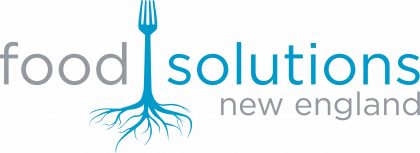Access the recording and agenda from AFT’s 2020 conference, “Food, Farms, Fisheries and Forests: Diet, Climate, Conservation, and a Healthy Future for New England.” This event was supported by Harvard Pilgrim Health Care Foundation and developed in partnership with Harvard Forest, Chan School of Public Health, Kennedy School of Government, Harvard Law School, and Food Solutions New England.
February 19, 2020
Presented by American Farmland Trust and the Harvard Pilgrim Health Care Foundation
In Partnership with Harvard Forest, Chan School of Public Health, Kennedy School of Government, Harvard Law School, and Food Solutions New England
This event is not open to the public but will be live-streamed for those who wish to watch. To view the agenda, click here. We will publish proceedings from the conference following the event.
In New England, we’re choosing to act and build regional resilience around food, fish, farms, and forests.
At this conference, we will explore what immediate actions can be taken for New England to realize the three major challenges outlined in “Planetary Health Diet,” the recently-released report by EAT-Lancet Commission, co-chaired by Walter Willett at the Harvard Chan School of Public Health, that calls for a radical transformation of the global food system by 2050.
The challenges are the following:
- Widespread adoption of diets based on whole grains, vegetables, fruits, nuts, and legumes, with low levels of animal protein (particularly red meat) and sugars
- Transformation of agriculture and fishing to focus on healthy foods and environmental quality — leading to dramatic reductions in water pollution and greenhouse gas emissions
- Food production that is embedded within larger natural systems that safeguard biodiversity to forestall a global extinction crisis
At the conference, we will identify major policy levers and investment opportunities that can help make both Food Solutions of New England and Harvard Forest’s visions a reality.
We will also address the challenges to achieving them in four sessions led by speakers who will spark discussion, followed by table talk to brainstorm links among how we eat, how we farm and fish, and how we care for our natural ecosystems.




